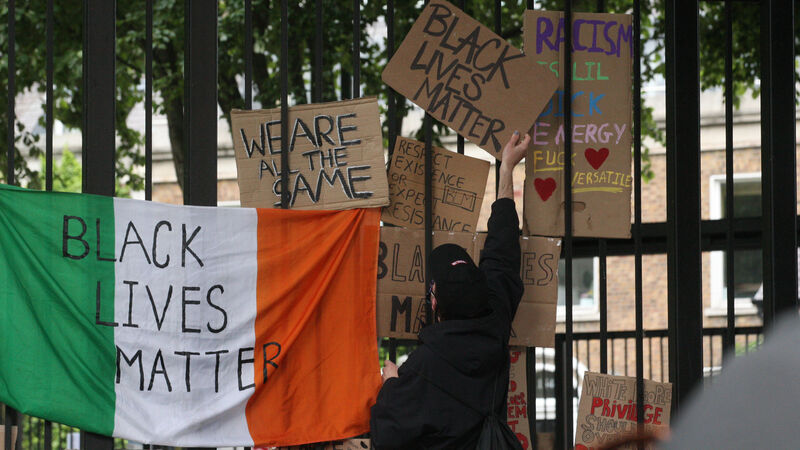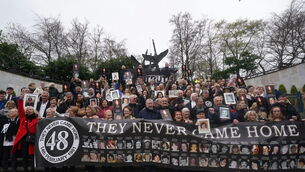Record number of racist incidents reported in 2020

A Black Lives Matter protest outside the Embassy of the United States of America in Dublin following the death of George Floyd in the US last year. Picture: Stephen Collins/ Photos
Incidents of racism have increased during the pandemic, a new report has found.
The Irish Network Against Racism (INAR) has launched the 2020 findings from iReport.ie - the racist incident reporting system.










